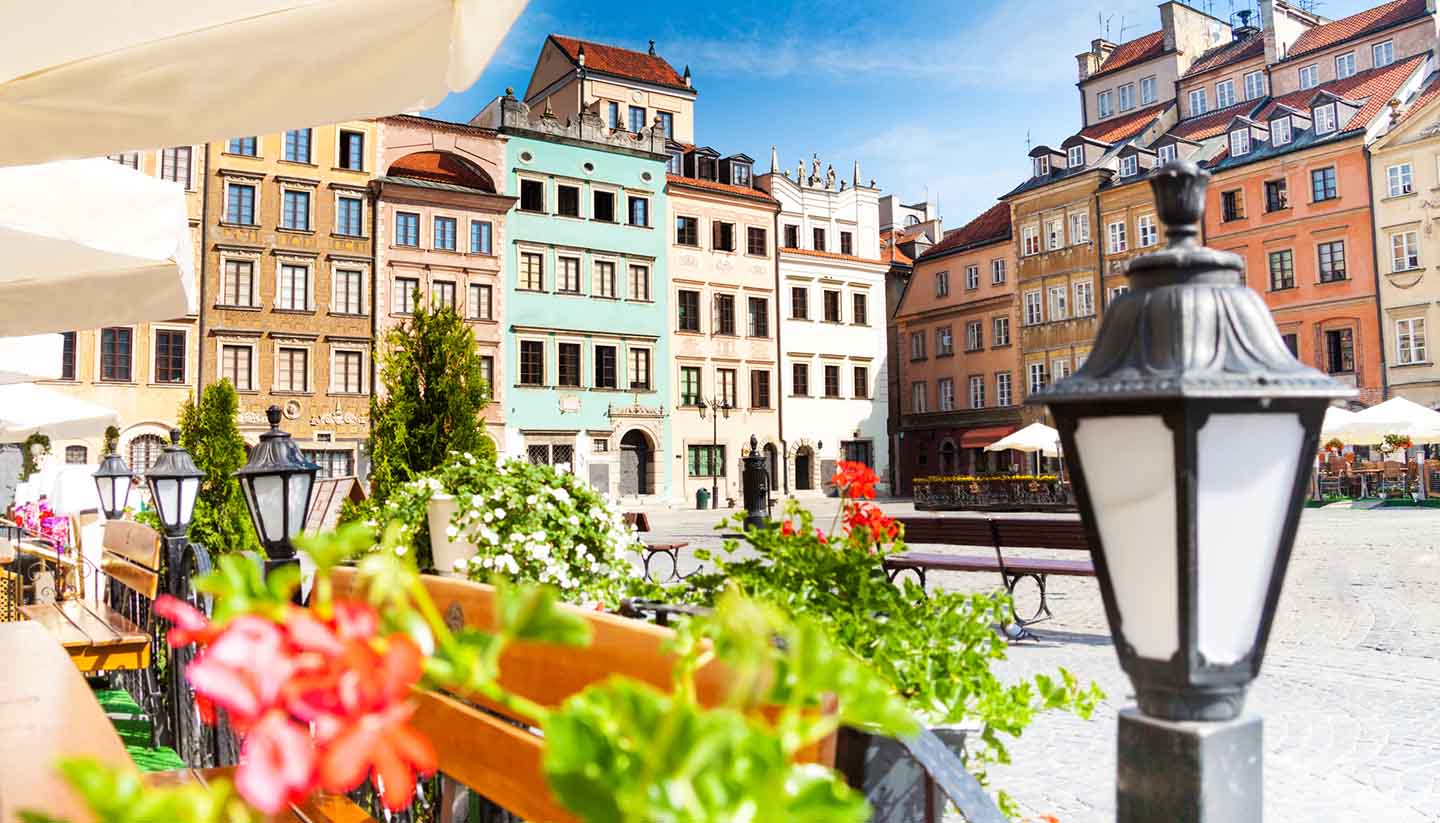Getting around Warsaw
Public transport
The Municipal Transport Board - ZTM (tel: 19115, in Poland only; www.ztm.waw.pl) operates the bus, tram and metro network, connecting all parts of Warsaw. Night buses converge on Ulica Emilii Plater, next to the Palace of Culture and Science.
Tickets, valid for all modes of transport, are available at Ruch and Relay kiosks, post offices and some shops and hotels. It is also possible to purchase tickets on board buses, but a surcharge applies. With every change of vehicle, you must punch a new ticket in the metal boxes inside the bus or tram, or before entering the platform on the underground.
One-day passes are valid for 24 hours after you first punch the ticket. Weekend passes and group weekend tickets (allowing up to five people to travel together) are also available. Students with an ISIC get a 50% discount and children under seven years of age travel free. Pickpockets operate on some routes (especially bus 175 to and from the airport).
Taxis
Taxis in Warsaw are metered and can be hailed on the street, although fares are usually cheaper if the taxi is ordered by telephone.
Reliable firms include MPT Radio Taxi (tel: +48 22 19 191, www.taximpt.com.pl), Halo Taxi (tel: +48 22 19 623, http://halotaxiok.pl) and Super Taxi (tel: +48 22 19 622, http://supertaxi.pl). Unofficial taxis should be avoided; only use a taxi with the telephone number displayed on the top. Tipping is usually around 10% of the fare.
Driving
In the past decade, traffic congestion in Warsaw has increased dramatically. Many of the city's drivers travel at high speeds and perform dangerous overtaking manoeuvres, which may trouble nervous visitors.
Be mindful of tramway lines when driving as the tracks are not always on a separate road area. At red lights, a small green arrow indicates that it is permissible to turn right, but priority must be given to cross traffic. At intersections without lights, traffic must stop for pedestrians once they have begun to cross at zebra crossings.
Paid street parking is in effect and there are some underground car parks in the city centre. There is also 24-hour parking around the Palace of Culture and Science.
Car hire
Drivers must be at least 21 or even 23 years old (depending on the company). There is no mandatory insurance, although collision damage waiver is advised. The major car hire providers in Warsaw are Avis (tel: +48 22 572 65 65; www.avis.pl), Budget (tel: +48 22 113 91 10; www.budget.pl) and Europcar (tel: +48 22 50 01 620; www.europcar.com.pl).
Bicycle hire
Warsaw is a flat city and has some wonderful cycling paths especially along the Vistula River, but beware that drivers are not supportive of cyclists sharing the road with them.
The city's bikeshare scheme, Veturilo (tel: +48 22 19 115; https://en.veturilo.waw.pl), has docking stations throughout Warsaw and runs in spring, summer and autumn.


